Functions of Education in National Life:
Education has a very vital role in national life. The state has a very close and intimate relationship with its citizens. The rise and fall of nations depend upon the individuals. The progress of a nation is possible only when its citizens are dynamic, resourceful, enterprising and responsible. Without such citizens, no progress of a country can be achieved in any field. Education can create such citizens who show qualities of dynamic leadership and a sense of responsibility, towards their nation at all times and in all circumstances. In short, education plays a significant role in national development, peace, progress and prosperity. If a democracy like ours is to survive, education must perform the following functions-
(1) National Development- Education is the most important means for the development of a nation. The national development of our country is dependent upon education because due to illiteracy men do not understand their rights, much less their duties. Under such circumstances, we should give priority to the plans of education. The main function of these plans should be to provide education to all men up to a certain standard. Education will enable every citizen to understand his rights and duties and will enable him to select able leaders whose leadership will accelerate the progress and development of the nation.
(2) National Integration- According to Pt. Jawahar Lal Nehru, “The question of integration covers in a sense almost everything in life, above all covers education, this is basic”.
In India, casteism, communalism, provincialism, regionalism and linguistic antagonism are the stumbling block for the achievement of national integration. Education is the only means which can end these separatist tendencies and can bring about national integration.
(3) To Give the Training for Leadership- Proper and efficient leadership is a necessary requirement in the present setup of our country. Education, should, therefore, give the training for leadership to the educands so that they may provide proper leadership in the economic, social, political and cultural fields.
(4) To Supply the Skilled Workers- Yet another function of education is to supply the skilled workers. With the help of skilled workers, commerce and industry will flourish and national wealth will increase.
(5) To Improve the Social Efficiency- In the modern age, one of the necessary functions of education is to improve the social efficiency of the educands. In other words, education should prepare such citizens as should not make uncalled-for interference in the activities of others and should not be a burden for the society and nation. On the other hand, they should contribute to the progress and prosperity of the nation. Education can prepare such efficient citizens only when the children are trained in such trades and industries as are useful for the society and nation.
(6) Subordination of Private Welfare to Public Welfare- In the materialistic world of today, individualism is developing day by day. People do not hesitate to ignore the interests of neighbours, society and nation before their own interests. This has led to increasing in mutual enmity, mutual bitterness and mutual jealousy which create obstructions in our progress. It is the function of education to inculcate in the educands the feelings of the subordination of private welfare to public welfare. They should be taught to subordinate their personal interests to the interests of society and the nation.
(7) Development of the Ideal of Emotional Integration- In India, there are many religions, customs, conventions, languages and methods of living. But amidst these diversities, there are our national ambitions and certain common things which all the Indians have inherited. These things provide unity amidst diversity and serve as a bond of unity to all the Indians. This is the ideal of emotional integration which is the basis of our progress. It is the function of education to inculcate the feeling of emotional integration among the people. The curriculum of the children should be constructed in such a way as should develop their emotions and attitudes in the right direction. It should inculcate patriotism and such permanent sentiment in the children so that they may feel happy and contended in performing their duties towards the nation.
(8) Inculcation of Social and Civic Duties- Inculcation of social and civic duties in our citizens is necessary for the secular and democratic setup of our country. It is the function of education to inculcate social and civic duties in the people.
(9) Security of Culture and Civilization- Education is an important means to ensure the security of the culture and civilization of any country. Education performs important works for the development and improvement of many conventions, customs, arts, religions, technical knowledge etc., which the society has inherited from the ancient period. In the words of a famous scholar, Ottaway, “One of the tasks of education is to hand on the cultural values and behaviour patterns of the society to his young and potential members.
(10) Provocation of Social Feeling- It is the function of education to inculcate social feeling in the educands. It should be the function of education to inculcate social qualities such as mercy, the welfare of others, leadership, love, sympathy, discipline etc. According to H. Gardon, “Education needs to recognize that he may move in the direction of bringing the social process to individuals, who are not capable of dealing with it”.
(11) To Prepare Good Citizens- It has been rightly said, “The prime purpose of the public educational system is to prepare students to assume obligations and duties of citizenship in the State”. Every State expects its people to be good citizens. Education proves helpful to fulfil this demand of the State. It is the function of education to inculcate in the children, patriotism, the capacity to understand their rights and duties, the ability to shoulder the responsibility of the administration of the country etc.
(12) Social Reformation and Progress- Last but not the least important function of education is to study the rules and principles of social changes and to direct and provide opportunities to the society to move in the right direction. In the words of a famous educationist Dewey, “Here (in education) is found the flowering of social and institutional motive, interest in the welfare of society and its progress and reform by surest and shortest means”.
The function of education for human and national life may be briefly concluded in the words of Bossing, “The function of education is conceived to be the adjustment which contemplates man’s adaption to and the reconstruction of his environment to and that this most enduring satisfaction may accrue to the individual and society”.
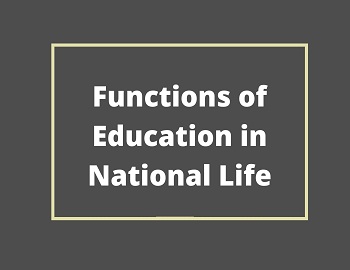
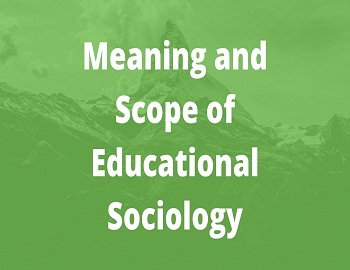

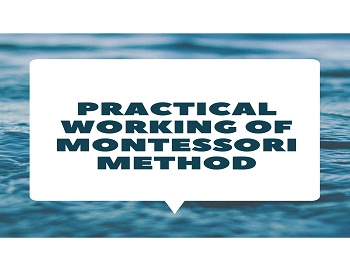


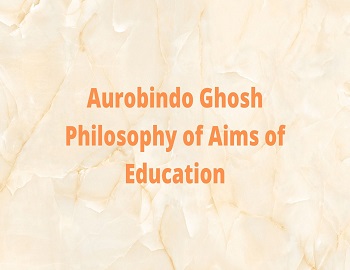
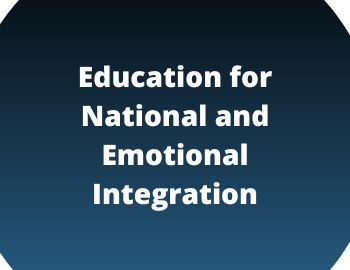
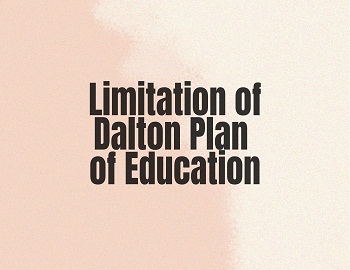
Comments (No)